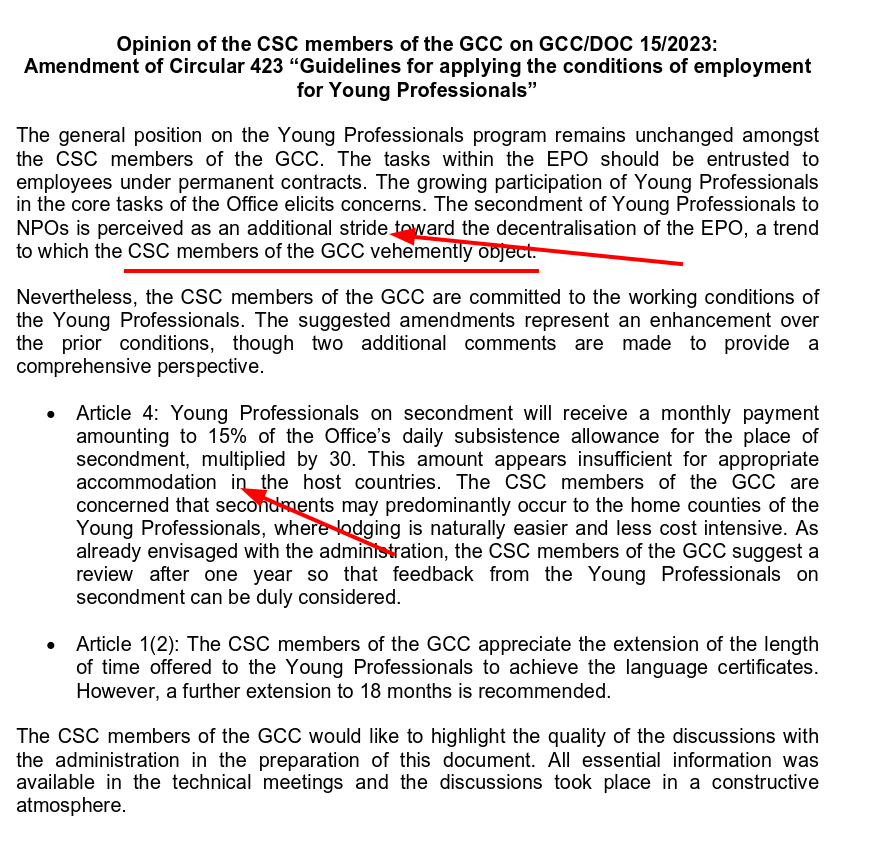EPO Staff Representatives Sound Alarm, Cautioning About Unlivable Conditions and Salaries to New ("Young") Professionals Who Serve to Dismantle the EPO and the EPC, Which the EPO Must Obey (But Does Not)
Typical EPO.

THE situation continues to deteriorate as the Office wants to outsource [1, 2], reduce salaries, reduce compliance (with the law), and reduce patent quality for a budget surplus of 400 million euros a year - basically money exchanged with multi-national corporations. They pocket "monopoly money" in exchange for state-enforced monopolies across Europe. They're selling Europe to foreign companies, dividing the market among them. The economic situation (crisis) will exacerbate. There is a moral duty here to antagonise such a land grab, even if it is formalised and sold to us as people in suits politely shaking hands for photo ops. Patent examiners should not participate in this, but new ones are paid so little that they lack time to think about it or join the union. They fight for "survival" and focus on everyday struggles. That's how starvation salaries keep people in line.
I recently spoke to someone who believes EPO staff should do a lot more and engage in industrial actions, among other things. "Also," this person said, "I had the opportunity to think about the EPO and I came to the conclusion that the staff is also responsible to a certain extent for the situation. Of course Battistelli, Campinos and all other accomplices are criminals, but the colleagues are a kind of "Mitläufer" because they only care about their own material situation."
We want to see more action and more 'radical' actions (like strikes). Otherwise the trajectory of the EPO leads to complete lawlessness, including fake 'courts'.
Half a decade ago we showed that the EPO had been advertising jobs for which the salary was insufficient... to even rent a decent place near the workplace! We showed some of the job ads. EPO insiders were baffled if not shocked that EPO recruiting processes were sinking that low. Who are they aiming to hire? Flunkies who cannot find any job elsewhere?
This is where the EPO is heading.
Wake up, examiners. You're next!
Things have gotten worse since then. The EPO hardly hires examiners (it just waits for existing ones to leave the increasingly unappealing office) and it hires unqualified people while emptying the offices, deviating further away from the EPC, creating a set of illegal kangaroo courts, and so on and so forth. The media is too reluctant or way too slow to catch up with these scandals.
It's not even clear if the EPO envisions a real future for itself. Maybe it's all intentional. A lot more could be said about the EPO hiring people on very low salaries, working with national patent offices (NPOs), and bypassing national courts that would naturally throw out lots of European Patents, granted sloppily by design. Many of these are software patents.
The EPO was meant to hire multi-lingual people (polyglots with several university degrees and relevant experience). It was supposed to provide them with a competitive salary and decent working condition that can retain talent and seniority. But even existing workers had their permanent contracts taken away, benefits reduced, and many more negative things. Some EPO work has been outsourced, even to Belarus, and they threaten the media for merely talking about it [1, 2].
A couple of months ago (in late October) EPO staff representatives spoke about several aspects of employment. The Central Staff Committee also included this in its 15-page report [PDF]:
Opinion of the CSC members of the GCC on GCC/DOC 15/2023:
Amendment of Circular 423 “Guidelines for applying the conditions of employment for Young Professionals”The general position on the Young Professionals program remains unchanged amongst the CSC members of the GCC. The tasks within the EPO should be entrusted to employees under permanent contracts. The growing participation of Young Professionals in the core tasks of the Office elicits concerns. The secondment of Young Professionals to NPOs is perceived as an additional stride toward the decentralisation of the EPO, a trend to which the CSC members of the GCC vehemently object.
Nevertheless, the CSC members of the GCC are committed to the working conditions of the Young Professionals. The suggested amendments represent an enhancement over the prior conditions, though two additional comments are made to provide a comprehensive perspective.
• Article 4: Young Professionals on secondment will receive a monthly payment amounting to 15% of the Office’s daily subsistence allowance for the place of secondment, multiplied by 30. This amount appears insufficient for appropriate accommodation in the host countries. The CSC members of the GCC are concerned that secondments may predominantly occur to the home counties of the Young Professionals, where lodging is naturally easier and less cost intensive. As already envisaged with the administration, the CSC members of the GCC suggest a review after one year so that feedback from the Young Professionals on secondment can be duly considered.
• Article 1(2): The CSC members of the GCC appreciate the extension of the length of time offered to the Young Professionals to achieve the language certificates. However, a further extension to 18 months is recommended.
The CSC members of the GCC would like to highlight the quality of the discussions with the administration in the preparation of this document. All essential information was available in the technical meetings and the discussions took place in a constructive atmosphere.
The EPO, which drove many workers to suicide, even covered "death insurance". █

